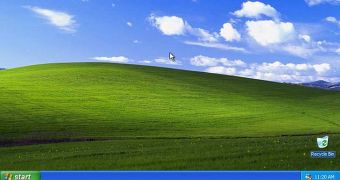Windows XP is an operating system that no longer receives support and security patches, but plenty of users are still running it, which means that some aren’t really afraid of the exploits that could help cybercriminals break into their computers and access personal data.
One of the reasons why some users might delay the move from Windows XP to a newer OS version is because the process is in essence very difficult, time consuming and costly, Chanel Homan, channel manager at McAfee SA, said in a recent statement for ITWeb.
Businesses in particular are very slow when it comes to the migration to a newer OS version, pretty much because the entire process is much more expensive, given the fact that it includes tens or maybe hundreds of computers that need to be moved to a new platform.
Homan says that even though anti-malware protection will continue to be offered, Windows XP users will still be exposed to attacks, as zero-day attacks and security breaches will still be possible without support offered by Microsoft itself.
“Many of these businesses have yet to grasp the risk they are exposing their business to if they haven't taken additional security measures or migrated platforms. Worryingly, many SMEs may also confuse Microsoft's extension of its anti-malware support for Windows XP to mean that this OS will remain protected – when, in reality, these businesses will still be vulnerable to zero-day attacks and other data security breaches, unless action is taken now,” says Homan.
Windows XP is still being used on 28 percent of desktop computers worldwide, even though Microsoft has warned so many times that sticking to an unsupported operating system is a very risky decision.
Microsoft obviously wants users to move to Windows 8.1, but the final costs are obviously higher because it also involves hardware upgrades to every computer included in the transition. Redmond itself admits that there are only a few computers out there currently running Windows XP and capable of coping with Windows 8.1 system requirements, so hardware upgrades are absolutely necessary.
“Very few older computers are able to run Windows 8.1, which is the latest version of Windows. The Windows 8.1 system requirements are almost the same as the Windows 8 system requirements—so if your PC can run Windows 8, in most cases you can get the free update to Windows 8.1,” Microsoft said.

 14 DAY TRIAL //
14 DAY TRIAL //